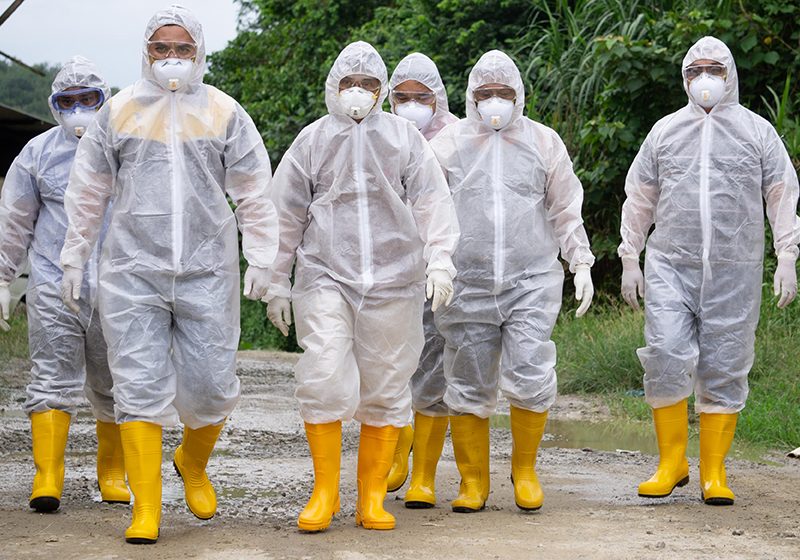Sixteen commercial poultry farms in the Fraser Valley have tested positive for highly pathogenic avian influenza over the past week, according to the Canadian Food Inspection Agency.
The cases bring the total number of properties affected in the province to 59, with commercial operations now the focus of concern despite ongoing government outreach aimed at small-lot growers.
Of the 30 commercial premises that have tested positive over the past two weeks, the majority fall within one of five control zones, which include four in Abbotsford and one in Chilliwack.
The industry remains at its most vigilant red biosecurity alert level, credited with limiting cases at commercial operations, but CFIA staff say farm-to-farm transmission is a risk.
“The high concentration of poultry operations in the Fraser Valley does present an increased risk for farm-to-farm spread,” CFIA told Country Life in BC in a statement.
CFIA is analyzing samples to help identify any movement of the virus between premises.
This year’s global outbreak is the worst on record since the highly pathogenic H5N1 strain of the virus that causes avian influenza was first identified in 1996. It is notable not just for the scale of deaths – more than 50 million birds, including more than 500,000 in BC – but the fact it’s impacted more than 80 wild and domestic species.
Besides domestic chickens and turkeys, ducks as well as pheasants and pea fowl have taken sick – species never before impacted in BC.
The province maintains that migratory birds are responsible for the virus’s introduction into domestic flocks. The province’s to vet has issued orders requiring commercial flocks be kept indoors.
To date, 33 wild birds – primarily eagles, owls, and waterfowl – have tested positive for H5N1 in BC. This is the least of any province in Canada. Three red fox and one skunk have also tested positive, according to the federal government’s avian influenza dashboard.
While the disease has decimated certain wild bird populations in Europe, CFIA staff indicate wildlife mortalities in BC have been low relative to commercial flocks.
“Avian influenza is enzootic in migratory wild birds and they are generally less susceptible to the disease than domestic poultry,” CFIA told Country Life in BC. “Wild birds can shed this virus without significant mortality levels being observed.”
CFIA did not indicate plans to escalate measures to fight this year’s outbreak. It continues, in partnership with industry, to urge producers “to follow strict biosecurity practices as a critical element in reducing the risk of spread.”
The province is hosting webinars for small-lot growers on November 30 and December 5 to help them address the threat of avian influenza on their farms.


 Dairy meetings highlight costs
Dairy meetings highlight costs